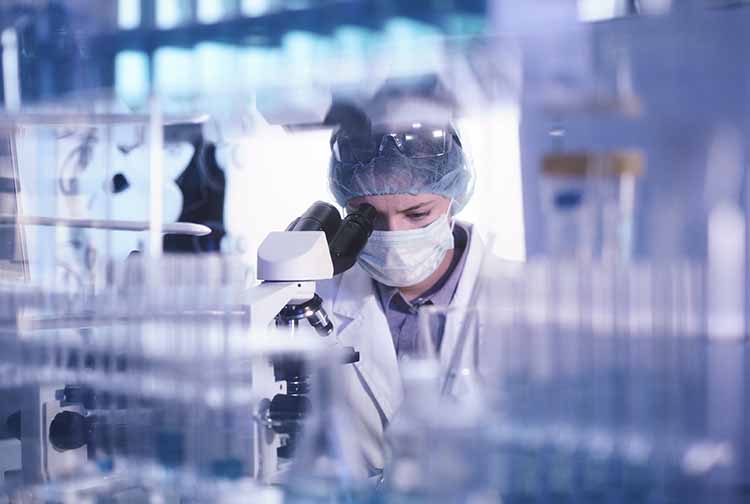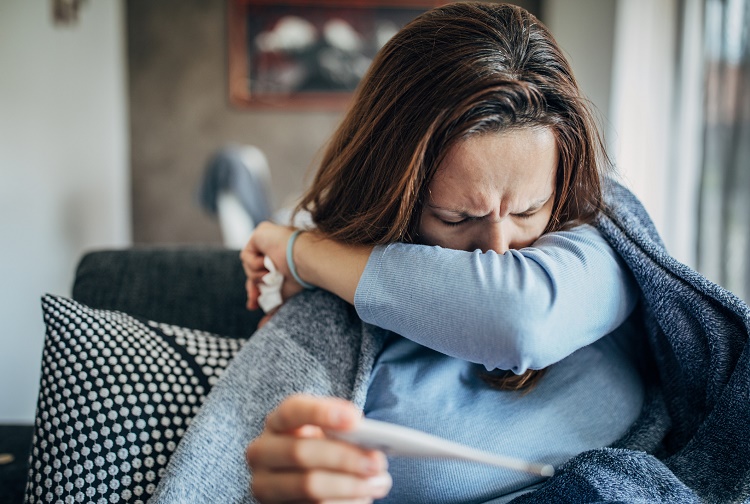
Johnson & Johnson vaccine: How is it different?
The Johnson & Johnson vaccine could mark a turning point in the pandemic.
May 03, 2021 Photo: Getty Images
Photo: Getty Images
According for the Centers for Disease Control and Prevention, the Johnson & Johnson COVID-19 Vaccine is no longer available in the United States, as the remaining stock expired May 7, 2023. People ages 18 years and older who received 1 or 2 Johnson & Johnson vaccine doses are recommended to receive 1 bivalent mRNA dose (Moderna or Pfizer-BioNTech) at least 2 months after the previous shot. For the most up-to-date information on this topic, please visit the VCU Health COVID-19 vaccine page. (Updated July 18, 2023 to reflect new information)
By James Shea
Millions of people have received the Pfizer and Moderna COVID-19 vaccines in the United States, but now there's a new kid on the block. The Food and Drug Administration has approved the Johnson & Johnson vaccine for emergency use, making it the third vaccine available in the U.S.
Here, Dr. Michael Stevens, associate chair of the Division of Infectious Diseases at the VCU School of Medicine, describes the differences between the three vaccines and the benefits of the new one from Johnson & Johnson.
What is the difference between how the Johnson & Johnson vaccine works and how the Pfizer and Moderna vaccines work?
The ultimate difference is the way the instructions are delivered. The Moderna and Pfizer vaccines use mRNA technology, and the Johnson & Johnson vaccine uses the more traditional virus-based technology.

Instead of using mRNA, the Johnson & Johnson vaccine uses a disabled adenovirus to deliver the instructions. This adenovirus is in no way related to the coronavirus. It is a completely different virus. Although it can deliver the instructions on how to defeat the coronavirus, it can’t replicate in your body and will not give you a viral infection.
Are there benefits to the Johnson & Johnson vaccine, based on its technology?
Absolutely. The huge advantage to the Johnson & Johnson vaccine is that it is a single shot. The mRNA vaccine requires two.
As well, the Johnson & Johnson vaccine can be kept at essentially refrigerator temperatures for months, and it’s stable. The mRNA vaccines aren’t as stable and require super cold storage temperatures. Once they’re out of cold storage, you only have a small window of time to administer them.
The Johnson & Johnson vaccine is much more like a regular vaccine and is much easier to distribute and maintain. That has huge implications for rural areas of the country. Those areas might not have the ability to keep the mRNA vaccines at super cold temperatures.
Aren’t cold storage and stability some of the reasons the rollout of the vaccine has been a challenge?
We have the capacity in a lot of the U.S. to get the cold storage mRNA vaccines out, but it can be a challenge in rural areas. When you start talking about a vaccine that is more stable and only involves a single shot, this is great news. The easier it is to give, the more people we’re going to vaccinate in the U.S. But this is also true internationally, where delivering a tricky mRNA vaccine can be a challenge in some areas due to the cold storage requirements.
I’ve heard the Johnson & Johnson vaccine is less effective than the Pfizer and Moderna vaccines. Your thoughts?
We have really done ourselves a disservice with how wildly effective the Pfizer and Moderna vaccines are. No one is going to say they don’t want a highly effective vaccine. We are all grateful, but at the start of the pandemic if you said you were going to produce a 60% effective vaccine, that would have been beyond most people’s wildest dreams. Compare that to the flu [vaccine], which can be 50% to 60% effective some years.
The Johnson & Johnson vaccine was found to be 72% effective at preventing moderate to severe cases of COVID-19. Across the board, it was around 66%. I think part of the reason is because it was studied later in the pandemic. Now there are more of these variants out there. The Johnson & Johnson vaccine was less effective in South Africa, where one of the variants has appeared. It was 57% in South Africa. I think if you were to test the Moderna and Pfizer vaccines now, they might be less effective because of the variants.
Isn’t a main advantage of the Johnson & Johnson vaccine that you’re less likely to get severely ill from COVID-19?
In the study population of almost 44,000 people, some of whom received a placebo and didn’t get the vaccine, the Johnson & Johnson vaccine was 85% effective in preventing hospitalizations and death. Even if the vaccine wasn’t 100% effective at preventing disease, it looks like it reduces severe disease. That is really what you want from a vaccine.
Can those who’ve gotten the vaccine still transmit the virus?
We don’t know, but you have to figure if someone has less virus, they might not transmit it as effectively. This could slow down the number of additional cases. That is really the idea with a vaccine, but nobody knows that for sure. That is the hope.
There will still be people who get sick, especially since there are so many cases. People are still going to need to wear masks and socially distance. It’s not a passport to go back to normal living. If you are, in theory, one of the 5% who got the Pfizer vaccine and still got COVID-19, you could still transmit the virus to people, and they could get super sick.
These vaccines are safe, right?
If it has emergency use authorization from the FDA, it has been held to a very high safety standard. These vaccine trials have had just massive amounts of patients. There have been at least 30,000 patients in each one of these trials, and Johnson & Johnson’s had 43,000 people. There were no harm signals in the Johnson & Johnson trials.
We have a few reports of possible severe adverse effects from the Moderna and Pfizer vaccines. Reports of severe adverse effects are being monitored and investigated closely. We still have to collect long-term safety data. For any immediate issues, those are usually collected in the vaccine trials. We have months of data now that show the vaccines are safe.
For more information
For a variety of news and information on COVID-19 and how VCU Health is keeping patients safe, please visit our COVID-19 News Center.



